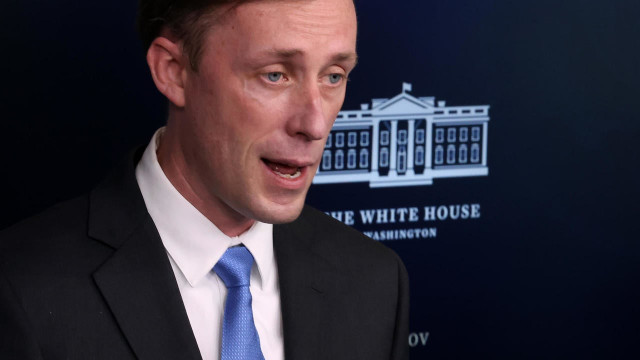US seeks more info from China after WHO Covid probe
Statement came days after a WHO team returned from Wuhan, China, with no clear finding on the origin of the virus

The United States has "deep concerns" about the early findings of an expert investigation into the origins of the coronavirus in China and is asking Beijing for more information, national security advisor Jake Sullivan said Saturday.
The statement came days after a World Health Organization team of inquiry returned from Wuhan, China, the epicenter of the pandemic, with no clear finding on the origin of the virus.
Members of the WHO team had to walk a diplomatic tightrope during their stay, with the US urging a "robust" probe and China warning against politicizing the issue.
"We have deep concerns about the way in which the early findings of the Covid-19 investigation were communicated and questions about the process used to reach them," Sullivan said.
"It is imperative that this report be independent, with expert findings free from intervention or alteration by the Chinese government," he continued.
And he called on China to "make available its data from the earliest days of the outbreak."
A WHO expert also voiced frustration Saturday over the lack of access to raw data during the recent mission to China, saying more was needed to detect possible early Covid cases.
"We want more data. We have asked for more data," Peter Ben Embarek, who headed WHO's expert mission to Wuhan, told AFP in an interview.
Lab leak disputed
The mission to Wuhan, where the first cases were spotted, failed to identify the source of the virus.
But it poured cold water on the theory backed by former US president Donald Trump that it leaked from a virology laboratory in the Chinese city, calling it "extremely unlikely".
Beijing has repeatedly floated the theory that the virus was instead brought to China through packaging on products such as frozen seafood -- a theory the WHO team did not rule out.
Experts believe the disease originated in bats and could have been transmitted to humans via another mammal.
Sullivan, in his statement, expressed "deep respect" for the WHO, which the US under President Joe Biden is rejoining. The Trump administration moved to quit it, saying in July 2020 that the agency was under China's sway and had produced an ineffectual virus response.
But, Sullivan added, "re-engaging the WHO also means holding it to the highest standards. And at this critical moment, protecting the WHO's credibility is a paramount priority."
'All hypotheses open'
At a press conference Friday in Geneva alongside Wuhan mission leader Peter Ben Embarek, WHO director-general Tedros Adhanom Ghebreyesus said the team had conducted a "very important scientific exercise in very difficult circumstances."
"Some questions have been raised as to whether some hypotheses have been discarded. Having spoken with some members of the team, I wish to confirm that all hypotheses remain open and require further analysis and studies," Tedros said.
"Some of that work may lie outside the remit and scope of this mission," he added.
"We have always said that this mission would not find all the answers, but it has added important information that takes us closer to understanding the origins of the virus."
Since the virus emerged in China in December 2019, it has killed at least 2,384,059 people worldwide, according to a tally from official sources compiled by AFP at 1100 GMT on Saturday.
A top European health official cautioned on Friday that the virus could continue circulating indefinitely.
"It seems very well adapted to humans," Andrea Ammon, the head of the Stockholm-based European Centre for Disease Prevention and Control, told AFP.
"So we should be prepared that it will remain with us. It wouldn't be the first virus that is with us forever."



















COMMENTS
Comments are moderated and generally will be posted if they are on-topic and not abusive.
For more information, please see our Comments FAQ